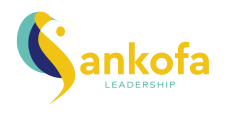
The Person-Centered Coaching Approach
According to the 2021 US Census 37.9 million Americans are experiencing poverty. This means 11.6% of people in this country face financial trauma everyday. More alarmingly, children make up more than one third of those experiencing poverty.
Programs like Medicare, Medicaid, Temperory Asisstance for Needy Families (TANF), Unemployment Insurance, Supplemental Nutrition Assistance Program, and Social Security Income (SSI) support millions of Americans navigating economic stress and strain; however, many participating in thirst programs unfortunately never achieve true economic self-sufficiency. Hardworking individuals and families across the country are paying the cost of a broken financial system driven by economic prosperity for some and persistent poverty for others. This is the reality of many urban and rural communities; however, a growing number of organizations and practitioners across the human service sectors are layering person-centered approaches into their service delivery model.
Person-Centered care begins with the assumption that people are capable, creative, resourceful, and know what is best for themselves and their family. This shift in perspective allows for transformative and collaborative partnerships to form, increasing the likelihood that someone might meet and maintain their goals toward economic stability.
Check out, The Person-Centered Coach ebook, now available for purchase.
Person-Centered Coaching expands the toolbelt of any human services practitioners committed to creating more equitable, reflective, accepting, and effective relationships by partnering with the people they serve to maximize the impact of their poverty reduction initiatives. This shift in their service delivery approach allows practitioners to do the transformative work that drew many to the human services field. Person-Centered coaches intentionally center their work with a client on the needs and strengths of the individual rather than centering their program offerings.
Traditional case management approaches allow for efficiency and compliance but often fail to account for the emotional intelligence and empathy needed to effectively coach someone to their desired goal within the confines of program and resource limitations. Person-centered coaching prioritizes building relationships based on genuine curiosity, emergent collaboration, and creative goal planning.
Sankofa’s Person-Centered Coaching model supports the goals of the person receiving services and equips them to help those in their family or network who may also need support making progress on their goals. Person-Centered Coaching aims to empower people to take control of their lives by recognizing their power to change, grow, and achieve the goals they set for themselves. Imagine how powerful that image would be for a child watching their parents meet their goals. Rather than having the child attend coaching sessions, Person-Centered Coaching aims to support the parent in becoming a coach for their children. We believe this has the power to disrupt systems of generational poverty radically.
We also believe in prioritizing the individual first rather than emphasizing their family's and network's needs over their own. For change to be lasting, we must support people in considering their own needs to then focus on the needs of those around them. This is often the hardest part for parents and caregivers. Person-Centered Coaching creates the environment that makes positive economic outcomes sustainable by establishing meaningful, manageable, and motivational goals. Working in ways that increase a person's belief in themselves and their ability to achieve their goals is the game changer. We must begin to approach economic mobility from two fronts: advocating for policies and programs to address systemic poverty and empowering people with equitable support as they transform their lives and navigate the existing systems. Person-Centered Coaching allows practitioners and organizations to do the latter while meeting people where they are.
Economic mobility starts at the level of the individual. When we support individual efforts we increase the likelihood of family and community transformation based on the input of community members.
The Person Centered Coaching approach helps practitioners
Recognize and navigate their own biases. Lead a curious coaching conversation
Create the conditions for their clients to achieve long-term change
Balance holding space for the client's humanity and holding the client accountable to their goals
Give control of the session to the client.
Includes elements of
An exploration of healing-informed practices
Discussions of historical biases and systems of discrimination
Equitable scaffolding
The Kellogg Foundation’s Family-Centered Coaching
Interested in learning more?



